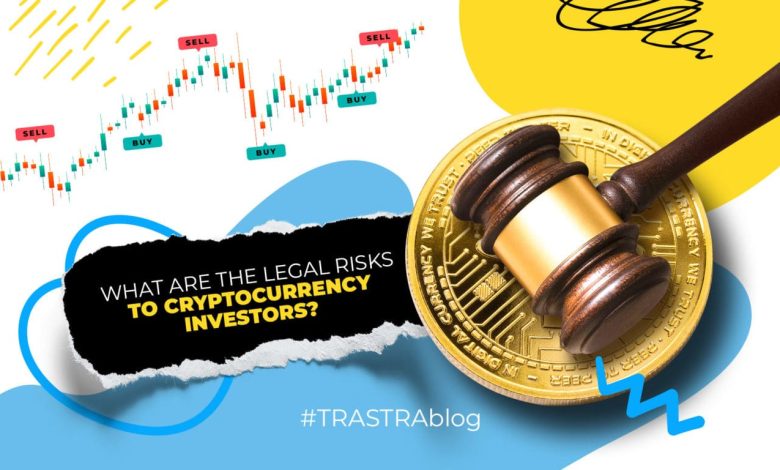Regulatory Risks for Crypto Investors

- Understanding the regulatory landscape for cryptocurrencies
- Key regulatory challenges facing crypto investors
- How government regulations impact the crypto market
- Navigating the legal uncertainties in the world of digital assets
- Compliance requirements for crypto investors in various jurisdictions
- The evolving regulatory environment and its implications for crypto investments
Understanding the regulatory landscape for cryptocurrencies
Understanding the regulatory landscape for cryptocurrencies is crucial for investors looking to navigate the complex world of digital assets. Governments around the world have been grappling with how to regulate cryptocurrencies, leading to a patchwork of laws and regulations that can be difficult to navigate. It is important for investors to stay informed about the latest developments in cryptocurrency regulation to ensure compliance and mitigate risks.
One of the main challenges for regulators is the decentralized nature of cryptocurrencies, which makes it difficult to apply traditional regulatory frameworks. As a result, regulators have taken different approaches to regulating cryptocurrencies, with some countries embracing them as legitimate forms of payment, while others have banned or restricted their use. This regulatory uncertainty can create risks for investors, as changes in regulations can impact the value and legality of their investments.
Investors should also be aware of the risks associated with investing in unregulated or poorly regulated cryptocurrencies. These assets are more susceptible to fraud, hacking, and market manipulation, which can result in significant financial losses. By understanding the regulatory landscape and conducting thorough due diligence, investors can better protect themselves from these risks and make more informed investment decisions.
Key regulatory challenges facing crypto investors
Investing in cryptocurrencies can be lucrative, but it also comes with its fair share of regulatory challenges that investors need to be aware of. Some of the key regulatory challenges facing crypto investors include:
- Uncertainty: The regulatory landscape surrounding cryptocurrencies is constantly evolving, leading to uncertainty for investors. Regulations can vary significantly from one country to another, making it difficult for investors to navigate the legal framework.
- Compliance: Ensuring compliance with existing regulations can be a daunting task for crypto investors. Failure to comply with regulatory requirements can result in hefty fines or even legal action.
- Security: The lack of regulatory oversight in the crypto market can expose investors to security risks, such as fraud and hacking. Without proper regulations in place, investors may fall victim to scams or lose their investments due to security breaches.
- Taxation: Cryptocurrency transactions are subject to taxation in many jurisdictions, but the rules surrounding crypto taxation can be complex and confusing. Investors need to stay informed about tax regulations to avoid running into issues with tax authorities.
- Market manipulation: The unregulated nature of the crypto market makes it vulnerable to market manipulation. Investors may be at risk of falling victim to pump-and-dump schemes or other forms of manipulation that can artificially inflate or deflate prices.
Overall, navigating the regulatory challenges in the crypto space requires a thorough understanding of the legal landscape and a proactive approach to compliance. By staying informed and seeking professional advice when needed, investors can mitigate the risks associated with regulatory uncertainty in the crypto market.
How government regulations impact the crypto market
Government regulations play a significant role in shaping the landscape of the crypto market. **Regulations** can have both positive and negative impacts on **cryptocurrency** prices and **investor** sentiment. On one hand, regulations can provide **investors** with a sense of security and legitimacy, leading to increased **investment** in the market. On the other hand, strict regulations can stifle **innovation** and limit the growth potential of **cryptocurrencies**.
One of the main ways in which government regulations impact the **crypto** market is through **compliance** requirements. **Regulatory** bodies may impose **rules** and guidelines that **cryptocurrency** exchanges and **wallet** providers must follow in order to operate legally. Failure to comply with these **regulations** can result in fines, shutdowns, or other **penalties**. This can create uncertainty in the market and deter **investors** from participating.
Additionally, government regulations can also affect the **liquidity** of **cryptocurrencies**. **Regulatory** changes that restrict the ability of **exchanges** to operate can lead to decreased **trading** volumes and **price** volatility. **Investors** may be hesitant to buy or sell **cryptocurrencies** if they are unsure about the **legal** implications of their actions. This can lead to **price** fluctuations and **market** instability.
Overall, it is important for **investors** to stay informed about **regulatory** developments in the **crypto** market. By understanding how **government** regulations can impact **cryptocurrency** prices and **market** dynamics, **investors** can make more informed decisions about when to buy, sell, or hold their **digital** assets. **Regulatory** risks are an important factor to consider when **investing** in **cryptocurrencies**, and **investors** should be prepared to adapt to changing **regulatory** environments.
Navigating the legal uncertainties in the world of digital assets
Navigating the legal uncertainties in the world of digital assets can be a daunting task for crypto investors. The regulatory landscape surrounding cryptocurrencies is constantly evolving, with new laws and guidelines being introduced regularly. This can create a sense of uncertainty and confusion for those looking to invest in digital assets.
One of the key challenges for crypto investors is determining which regulatory bodies have jurisdiction over their investments. Different countries have different laws regarding cryptocurrencies, and it can be difficult to navigate these regulations without the help of a legal expert. Additionally, the lack of uniformity in regulations across different jurisdictions can make it challenging to ensure compliance with all relevant laws.
Another issue facing crypto investors is the potential for regulatory crackdowns on digital assets. Governments around the world are increasingly concerned about the use of cryptocurrencies for illegal activities such as money laundering and tax evasion. As a result, regulators are cracking down on crypto exchanges and other platforms that facilitate the trading of digital assets.
To navigate these legal uncertainties, crypto investors should seek out legal advice from experts in the field of cryptocurrency law. These professionals can help investors understand the regulatory landscape in their jurisdiction and ensure that they are in compliance with all relevant laws. Additionally, investors should stay informed about regulatory developments in the cryptocurrency space and be prepared to adjust their investment strategies accordingly.
Overall, navigating the legal uncertainties in the world of digital assets requires a proactive approach and a willingness to adapt to changing regulations. By staying informed and seeking out expert advice, crypto investors can mitigate the regulatory risks associated with investing in cryptocurrencies.
Compliance requirements for crypto investors in various jurisdictions
When it comes to compliance requirements for crypto investors, it is essential to understand the regulations in various jurisdictions. Different countries have different rules and regulations regarding cryptocurrency investments. Here is a brief overview of the compliance requirements for crypto investors in some key jurisdictions:
- United States: In the US, crypto investors need to comply with regulations set by the Securities and Exchange Commission (SEC) and the Commodity Futures Trading Commission (CFTC). They must also adhere to anti-money laundering (AML) and know your customer (KYC) requirements.
- European Union: In the EU, crypto investors are subject to the Markets in Crypto Assets (MiCA) regulation, which aims to provide a comprehensive regulatory framework for cryptocurrencies. They must also comply with AML and KYC regulations.
- China: In China, cryptocurrency trading is banned, and investors are not allowed to engage in any crypto-related activities. The government has imposed strict regulations to crack down on crypto trading and mining.
- Japan: In Japan, crypto investors must register with the Financial Services Agency (FSA) and comply with the Payment Services Act. They are also required to follow AML and KYC regulations to prevent money laundering and terrorist financing.
It is crucial for crypto investors to stay informed about the compliance requirements in their respective jurisdictions to avoid any legal issues. Failure to comply with regulations can result in hefty fines or even imprisonment in some cases. Therefore, it is essential to conduct thorough research and seek legal advice to ensure compliance with the laws and regulations governing cryptocurrency investments.
The evolving regulatory environment and its implications for crypto investments
The evolving regulatory landscape has significant implications for crypto investments. Governments around the world are increasingly focusing on regulating the cryptocurrency market to protect investors and prevent illicit activities. This shift towards regulation can impact the crypto market in various ways, influencing investment strategies and market dynamics.
Regulatory changes can introduce uncertainty and volatility into the crypto market, affecting investment decisions and profitability. Investors need to stay informed about the latest regulatory developments and adapt their investment strategies accordingly to mitigate risks and capitalize on opportunities.
Compliance with regulatory requirements is essential for crypto investors to avoid legal issues and protect their investment. Failure to comply with regulations can result in financial penalties and losses, highlighting the importance of staying compliant with regulatory frameworks.



